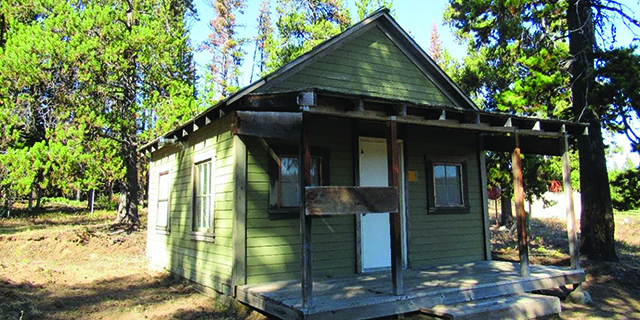Wandscheider: Poor rich kids
Published 6:25 am Wednesday, March 20, 2019
Money—I don’t have much of it, and never have had. I’m sure my children and grandchildren suffered for it, and my own path—at almost 77—has been muddier for it. Muddier, but in most ways a happier path. I still work, and go to work loving it. I live in a beautiful place and have good friends and good health. And I get to share my opinions with readers in my hometown newspaper.
And no one bought my way into a great college. In the 1960s, California still revered education—it was the key to success, and to good citizenship. We didn’t buy a pencil in grade school and college was tuition-free. Good grades got you into a state college, better grades into the university system, and junior colleges created yet another education path. Money was not part of the equation in one of the best higher education systems in the country. At UC Riverside classes were small—and good—and chemistry majors and historians played football and rugby.
Trending
The 50s and 60s had plenty of problems: Women, sent home after WW II to make babies, meals, and cocktails for the office-going husband, were discouraged from almost all professional and technical fields. Medical and law school quotas for women—and blacks and Jews—were miniscule. Public policy and majority opinion championed the nuclear family with a male breadwinner, and old Jim Crow and a WASP (“White Anglo-Saxon Protestant”) power structure made national and state politics good ol’ white boys’ clubs.
The Civil Rights movement, fueled on simmer since the Civil War by committed intellectuals, clergymen, and social abolitionists—black and white—erupted in the 50s with the Brown v. Board of Education ruling that separate was NOT equal. Latinos—part of California before California was part of the US, filled few professional jobs in the state in the 50s and 60s. There were urban riots and assassinations of movement leaders. Civil Rights was messy stuff.
As was the war in Vietnam. An ill-conceived war that robbed millions of American men and Vietnamese men, women, and children of their lives and, more generally, of confidence in a fair and just future. It also sent refugees scurrying across the world—a scurrying that has continued and intensified with war and drought in Africa and the Middle East.
Nevertheless, I had the good fortune to grow up in a time when worth was not measured by wealth, and I have spent a lifetime talking with, in friendship with, in collaboration with, people in positions of political power, people who enjoy fame for their writings and their good works, and people who have larger bank accounts than I’ve ever had or will have, because wealth did not count for all that much as I learned life’s ropes. The rich girl who came back to college with a new red convertible from her parents soon sold it and took a job in the school cafeteria. My Peace Corps partner for two years in a village in Eastern Turkey came from a family that owned a big chunk of Port Townsend. No one in our Peace Corps group knew—or gave a damn when they learned. President Kennedy—a Catholic President!—was dead, but all Peace Corps Volunteers were his children.
We lived in dreams and hope. No one told us how much money a lawyer—or a plumber—made. Teachers and professors told us to find something important to do, and something we wanted to do. They sent me into the Peace Corps chasing hope, and I guess I’ve spent the last 50 odd years doing just that. And bless my children, and now my grandchildren, because they go through their own rough times, but somehow seem to hang on with hope.
I played against Stanford’s eventual starting quarterback in high school. I scored higher than he did on the SAT, and did not get into Stanford, but he was a heckuva football player and that seemed fair. A nod to a football or saxophone player makes some sense, and I’m all for mixing it up with colors and religions—because all of those things make for a more interesting campus for all students.
Trending
But the worship of wealth, and the religion of wealth infecting the finest schools in the country, is disgusting. The idea that wealth makes for happiness should have been put to bed again (it was once, in the 1800s, but that’s another story) by Michael Douglas in “Wall Street.” Instead, we have Wall Street and Hollywood millionaires trying to buy college success and happiness for their children.
What they’ve really done is promoted corruption and left their children—and schools—with stains that won’t be removed with the sale of a red convertible.









